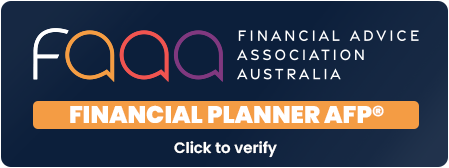Do I Really Need a Financial Advisor? 7 Signs It’s Time to Get Advice
When it comes to money, many Australians wonder: “Do I really need a financial advisor, or can I just figure it out myself?” It’s a fair question — after all, there’s no shortage of blogs, podcasts, and online calculators out there.
But the truth is, financial advice isn’t about fancy spreadsheets or jargon. It’s about helping you get clear on your goals, make confident decisions, and avoid costly mistakes. If you’ve been asking yourself whether it’s time to seek professional guidance, here are seven signs you could benefit from working with a financial advisor.
1. You’re not sure if you’re on track for retirement
Retirement planning is one of the biggest reasons people seek advice. Maybe you’ve asked yourself: “How much super do I need?” or “Will I have enough to retire comfortably?”
A financial advisor can help you understand your superannuation balance, contributions, and investment strategy — so you know whether you’re on track or need to make changes now.
2. You feel overwhelmed by superannuation and investments
Super funds, fees, investment options, insurance inside super… it can all feel complicated. If you’re not confident making decisions, you’re not alone.
A financial advisor can simplify your options, recommend strategies that suit your risk profile, and help you grow your wealth with less stress.
3. You’ve bought a home (or are planning to)
Your home loan will likely be the biggest financial commitment you ever make. The right strategy — such as using an offset account or adjusting repayment structures — can save you thousands in interest.
A financial advisor can show you how to balance paying down debt while still investing for your future.
4. You’re starting a family
Raising kids is rewarding, but it also changes your financial world. From budgeting on one income, to protecting your family with the right insurance cover, to saving for education costs — the choices can feel overwhelming.
An advisor can help you set up a family-focused strategy so you can provide security without sacrificing your own goals.
5. You want to make the most of your money, but don’t know where to start
Maybe you’ve built up some savings, or you’re finally earning more than you spend — but you’re not sure what to do next. Should you invest? Put more into super? Save for a property?
This is where financial advice makes a huge difference. An advisor will help you set priorities and create a clear action plan.
6. You’re worried about protecting your family
If something happened to you tomorrow, would your family be financially secure? Many Australians don’t have the right level of life insurance or income protection.
A financial advisor can review your existing cover and help ensure you’re not underinsured (or paying for cover you don’t need).
7. You want peace of mind
Ultimately, financial advice is about more than just money. It’s about reducing stress, having a plan, and knowing you’re making the right moves for your future.
If you’re lying awake worrying about money, or second-guessing every decision, a financial advisor can give you clarity and confidence.
Do you need a financial advisor?
If any of these signs sound familiar, it might be the right time to seek advice. At Elevate Financial Planning, we help people across Geelong, the Surf Coast, and the Bellarine Peninsula — as well as clients online across Australia — to take control of their finances and feel confident about the future.
You don’t have to figure it all out on your own. A chat with an advisor could be the first step towards a simpler, more secure financial life.
For personalised financial services and advice, speak with your Financial Advisor today at Elevate Financial Planning
- Arlan Davine













